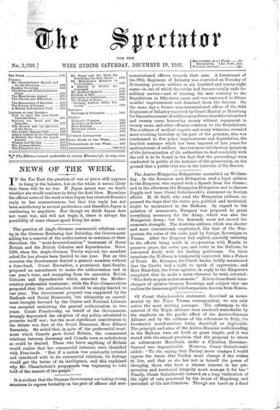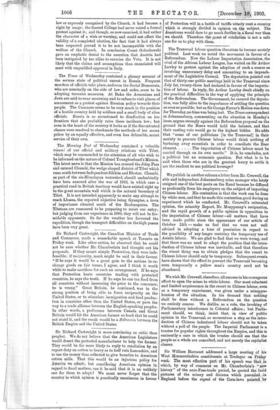Of Count Goluchowski's statement, described as monu- mental by the
Times Vienna correspondent, we can only notice the most striking passages. The references to the renewal of the Triple Alliance were rendered remarkable by the emphasis on the pacific effect of the Austro-German Alliance and by the coldness of the references to Italy, the Irredentist manifestations being described as deplorable. The principle and aims of the Austro-Russian understanding in the Balkans were set forth at great length, and it was stated with the utmost precision that the proposal to create an autonomous Macedonia under a Christian Governor. General was impracticable. However, Count Goluchowski added : " To the saying that Turkey never changes I would oppose the thesis that Turkey must change if she wishes to live, and that as she has not in herself the power of changing, those who have a sincere interest in her pre- servation and territorial integrity must manage it for her." Finally, Count Goluchowski entered on a long vindication of the right of veto possessed by the house of Hapsburg and exercised at'the last Conclave. Though not based on it fixed
law or expressly recognised by the Church, it had become a right by usage ; the Sacred College had never raised a formal protest against it ; and though, as now exercised, it had rather• the character of a wish or warning, and could not affect the validity of a completed election, the fact that it had always been respected proved it to be not, incompatible with the welfare of the Church. In conclusion Count Goluchowski gave an emphatic denial to the assertion that Austria had been instigated by her allies to exercise the "Veto. It is not likely that the claims and assumptions thus enunciated will meet with unqualified approval in Italy.



















































